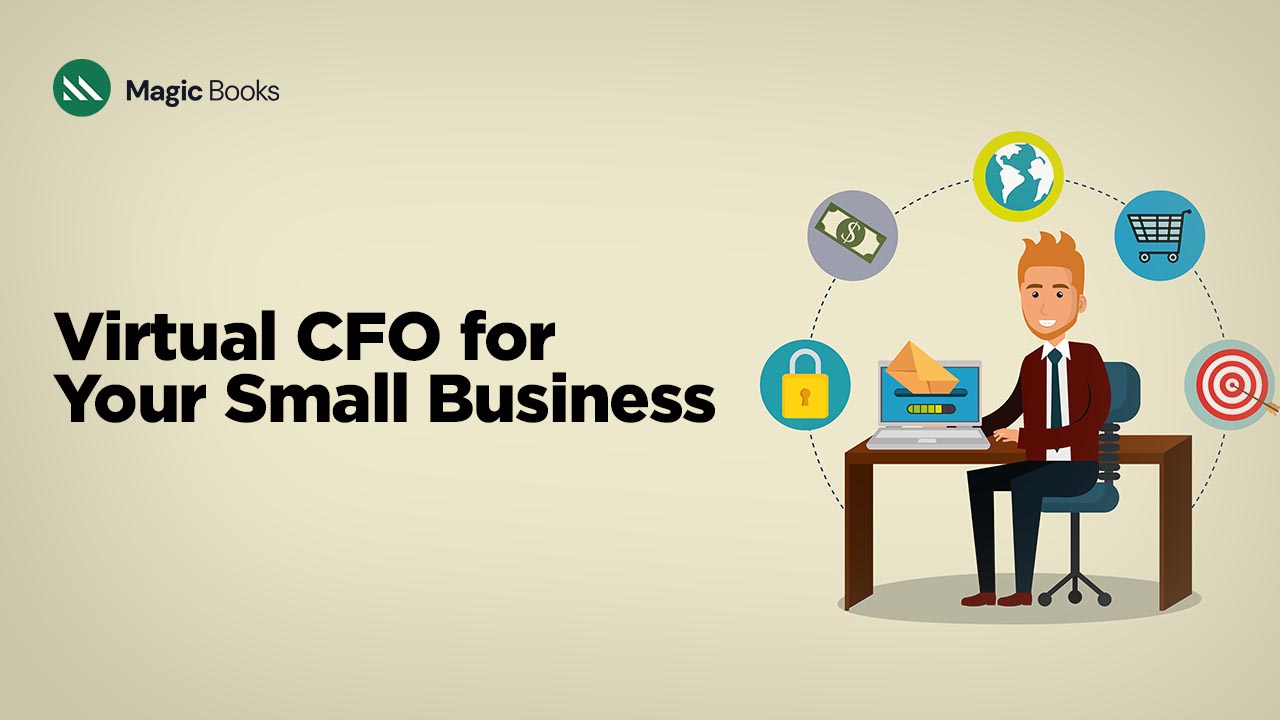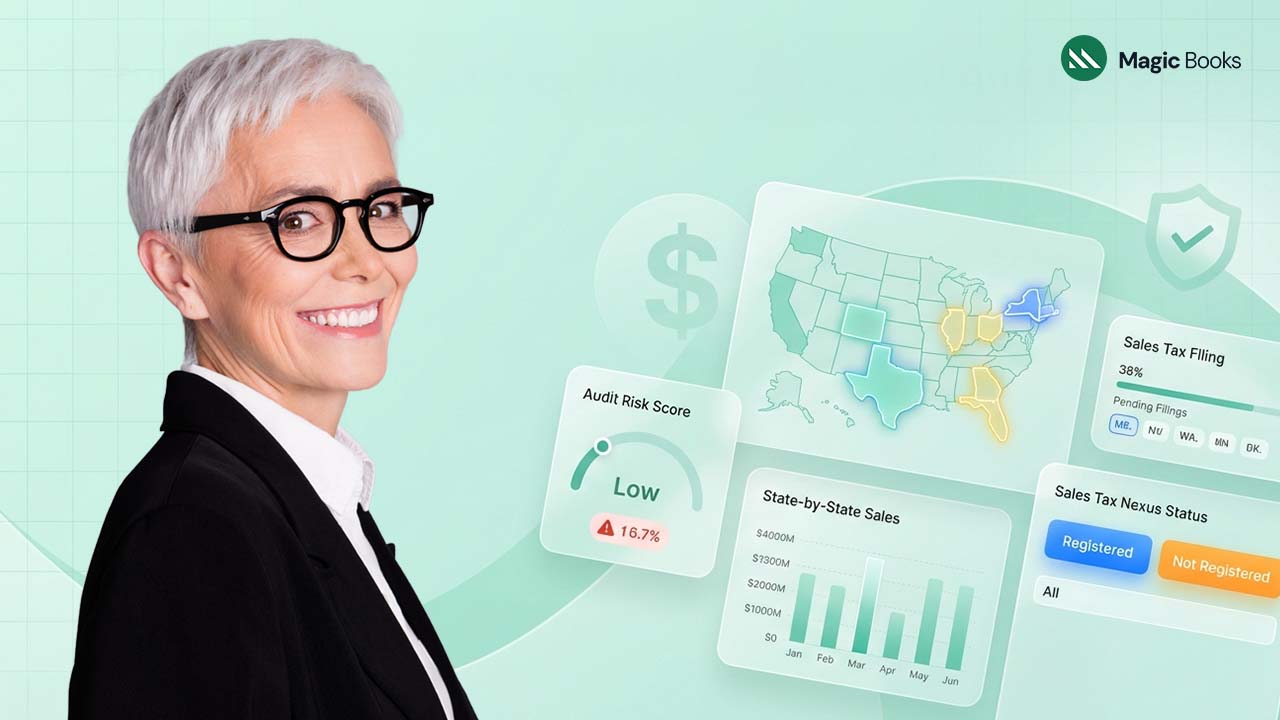As your organization keeps on growing, it needs more financial planning so that you are able to monitor cash flows and hence develop strategies towards sustainable growth anchored from the company’s finances. But there is just one person who can do that in your organization: Chief Financial Officer.
A CFO basically handles the supervision and control of the financial position of a company and strategic decisions based on the financial strength and weakness of an organization. As a small business owner, you probably have run across the term “virtual CFO” while doing research or trying to find funding. Similar to a full-time knowledge and advice bank on an organization’s finances, virtual remote CFO services do not come with overheads of the same proportions, such as a large salary and associated bonuses, benefits, and office space that a hire for a high-level full-time executive would entail.
Sure, there are many advantages a virtual CFO has; yet for this article, we will pick what is more useful.
Before we get to the benefits of virtual CFO, let’s start with the basics:
What is a CFO?
In simple terms, the Chief Financial Officer is an individual in charge of managing your company’s finances through bookkeeping while ensuring compliance, doing strategic financial planning, and handling corporate investments.
Previously, the CFO’s work primarily revolved around very straightforward tasks of financial reporting. The 22nd-century CFO, in contrast, is tasked with taking the organization to its path of success and shifting it through financial information toward wise decision-making operations. That’s a very important role that will have big effects either positively or negatively, influencing your company’s culture and strategic development.
Here are five signs you require a CFO:
How would one know when their small business needs a CFO? Well, here are some signs. If any of these apply, then maybe it is time to hire a CFO for your small company.
More Employees: The faster your revenue and number of employees grow, the more complicated your finance management will become. A CFO can solve complex tasks like paying employees, planning taxes, following the law, and forecasting finances so you focus on moving the business ahead.
Expansion planning: This will involve launching new products, business expansion, or acquiring other companies. Those often demand a lot of money, and the CFO of a small company can help raise such money while negotiating deals and making financial plans. Down the road, you will make many crucially important financial decisions that dramatically impact you. An empowered small business CFO has the right data and information to make sense of financial planning, track market trends, and measure risks by making the best choices for you.
Accuracy issues: A great CFO service for startups and small businesses will create some awesome financial systems. That includes the right record-keeping and invoicing to ensure great account receivable management.
Demand exceeds supply: Growing to new heights can lead to demand outpacing capacity. This is a good problem to have, but very often you consider your options when scaling to keep piling unnecessary risk. A small company CFO can weigh the pros and cons, make financial projections, and help you analyze market trends to improve the kind of decision-making you do.
Now that you have some idea about the old-school CFO, let’s talk about version 2.0., otherwise known as a virtual CFO.
What is a Virtual CFO?
A virtual chief financial officer is a business or professional offering the services of a CFO from afar on a part-time or contract basis. The role offers all that an in-house CFO might provide to a business but is infinitely more flexible and easy to fit any specific business needs and budgetary restrictions.
A full-time, in-house CFO can be quite costly for a small business. A virtual CFO presents an alternative, which is much more economical, such that a business can experience the expertise of a full-time CFO without having to incur the cost of a full-time salary. Usually not office-based, a virtual CFO applies technology and works from anywhere in order to deliver necessary financial advice and crucial services.
Virtual CFOs are in great demand these days, especially by startups and small and medium-sized enterprises that also need financial assistance temporarily or the presence of experts who possess special skills for some specific projects. They are an affluent resource for experienced advice. You don’t need to hire a full-time CFO unless you absolutely have to. The best part is that they work in a technological environment working for you from afar.
A virtual chief financial officer, or virtual CFO performs a very wide-ranging set of tasks including:
- Offering financial planning advice
- Use financial plans.
- Obtaining funding
- Guaranteed long-term growth
- Managing assets and debts to support the financial health of a business.
Their role has evolved with remote work and cloud-based systems; so now they can offer part-time financial services. Then this enables even the small companies to have good-quality financial help that, until lately, had been the exclusive domain of the bigger companies with a full-time CFO.
The Virtual CFO Role:
An outsourced virtual CFO can offer an enormous variety of outsourced financial services, including:
- Efficient cash flow management
- Financial strategy development
- In-depth study.
- Tailored Mentoring
Even though they are virtual, Virtual CFOs can stay in touch with clients through digital tools, including video calls, emails, online collaboration platforms, and everything else. This helps to deliver real-time financial advice and participate in all those strategic conversations that will prove to be necessary. Tools and services like Magicbooks, Freshbooks, Fathom, Futrli, and others also support them in accounting, financial analysis, reporting, and management tasks.
In-House and Virtual CFOs: A Comparison
Of course, one must note that a full-time CFO will cost more in benefits, among other things, than his or her salary. On the other hand, a virtual CFO would charge between $200 and $500 per hour. This option will generally be economically viable to those businesses that do not require a full-time financial manager.
Virtual CFOs are very effective in their adaptability and flexibility. They are much cheaper to hire and provide their services and expertise on a fluctuating basis according to the specific needs of each business. For this reason, they come out to be one of the most preferred for small business ventures and startups. However, with an online CFO comes a certain lack of familiarity with the real nature of your own industry. At times it may become quite challenging to find information in real time.
Should you hire a Virtual CFO, a Bookkeeper, or a Full-time CFO?
This should be according to the needs of the business and the scale of the company. Here is some guidance:
We would recommend you hire a bookkeeper or a general CPA firm if your business generates less than $2 million per year since it is going to cost you relatively less. For those businesses that earn over $2 million per year where you require a financial advisor but cannot afford yet to have a full-time CFO or controller, a virtual CFO will be the ideal solution for you.
Experienced full-time CFOs make money hand over fist. Salary averages for a CFO stand at about $440,000, excluding vacations and other benefits. This determines if you can afford a full-time CFO or should begin with a virtual or a part-time CFO.
Because the work is complex, a big company wants to have a CFO who works for them full time. However, apart from size, there are other reasons to choose a virtual CFO. A virtual CFO has many clients and a group of helpers. So you benefit from their experience.
As a general rule, a business problem has already been solved. Usually, there is a solution by the time another virtual CFO comes along whom someone on his team would have encountered it or thought about it in depth.
You will not only have the experience of a fractional CFO but also specialized knowledge in your industry to empower you with best practices that can help your business get to the next level.
Let’s discuss some great reasons to look at a VCFO versus a full-time CFO for a firm.
Cost cutting:
A VCFO will save your organization from extra efforts since you will be recruiting a full-time employee with the same payment of bonuses and other benefits. Virtual CFO services are cheaper than the in-house CFO with the same level of experience. VCFO services vary according to the needs you want to be delivered, hence costs will be different as time and effort vary depending on the requirements of the business.
Flexibility and scalability:
VCFO services help determine the time and costs that are right for your organization. Whether you need a VCFO on a full-time or part-time basis depends on your needs. You can work out a flexible hours arrangement to suit your business’s needs.
Using technology:
A good VCFO will be using the latest technological tools to leverage AI and advanced data analytics in its processes to manage and ensure accounting compliance and provide solid financial projections.
Budget control:
Virtual CFO services provide transparent reports on budget analysis that are based on your fixed budget to track spending for your business and regularly check and update your organization’s budget. Higher cash outgo: Virtual CFO services are useful for cash flow improvement as they can provide advice and ideas on making certain aspects of the business better. A professional VCFO will see your financial position and expenditure habits and then give ideas accordingly on the ways to improve cash flow.
Diverse industry experience:
Virtual CFOs are unique in the sense that they work with and learn various industries simultaneously. The provider of VCFO that you will be working with probably will give you a CFO who is well aware of your business type, but they might have worked in other fields as well. Such variety in experience can bring more insights and connections that otherwise you could not get for your organization.
A group of CFOs ready to help you:
This way, by hiring a virtual CFO who belongs to an external CFO team or organization, your company would leverage the expertise and knowledge that comes not only from that one CFO but from the entire team of CFOs of that VCFO service provider. Your primary contact is the VCFO assigned to you, and you also tap into the know-how of many experienced CFOs. They all work collectively in overseeing your organization’s budget, cash flow, expenses, and financial risks.
A Huge system:
Most experienced CFOs take years to develop and build an extensive network of contacts from investors, lenders, or other economic professionals. A virtual CFO working on a well-structured team of VCFOs can bank on his or her contacts or those of the other experienced CFOs that he or she works with. This establishment of a network of professionals and business experts helps in the means of getting funds and easy planning of the expansion of the organization to new products, services, or locations.
To be able to challenge anything:
Virtual CFOs have experience handling the financial needs of many organizations in various areas. They are prepared to solve any problem your company is having. They have probably operated for companies of varying sizes and at different development stages and solved many problems. Even when a new challenge occurs, the collective experience of the entire team of CFOs comes into play to fall back upon to present a workable solution to any problem.
Virtual CFO service is cost-effective, with flexible access by businesses to professional support. Virtual CFO’s are very crucial to be successful in any business and they help develop a strategic financial plan, and manage various risks, cash flow, and other functions. If a proper virtual CFO provider is acquired, businesses can match well their financial goals and expectations and also have better communication to reach long-run growth and reap better profits.



